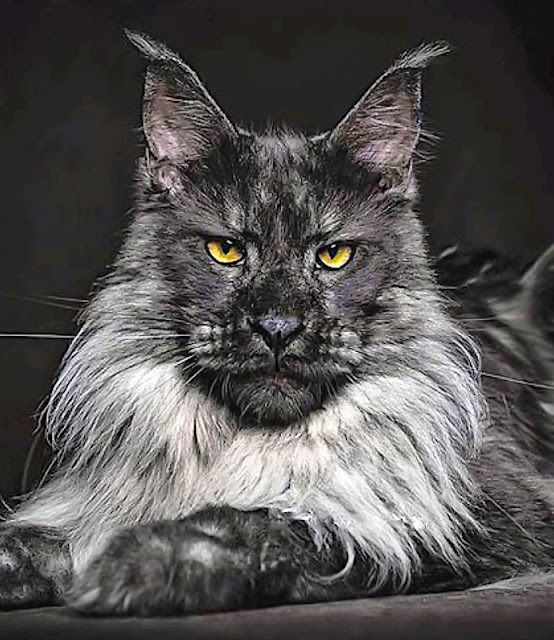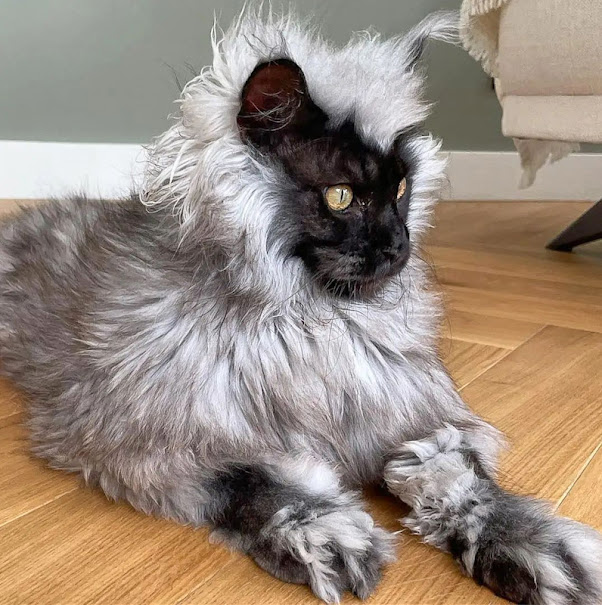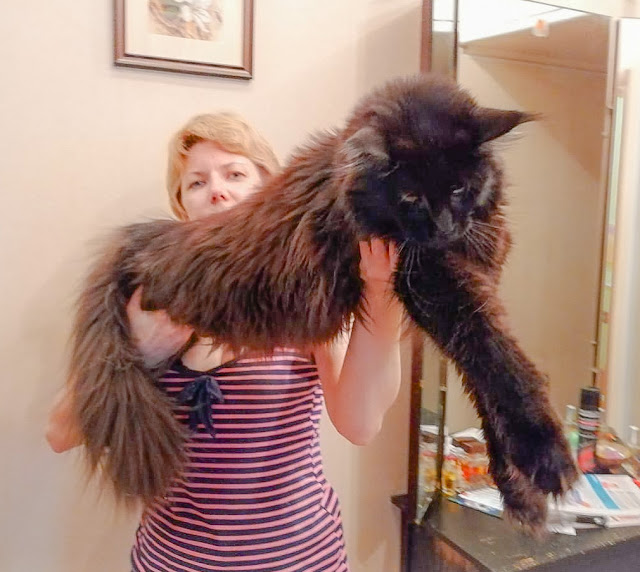How do I know if my Maine Coon has hip dysplasia (HD)?
We know that hip dysplasia (HD) is pretty common in Maine Coon cats, regrettably. It should be something that Maine Coon cat owners are fully aware of, and I am sure that most of them are. I think that it should worry people who want to adopt a Maine Coon cat. It means that you are adopting a cat that is liable to end up disabled requiring special treatment and perhaps veterinary care. Anyway, that is another topic.
Although the breeders should do more about this as a matter urgency, but it appears to be accepted by the cat fancy which if true is remiss of them.
Breeders would normally take steps such as eliminating cats with HD from the breeding programme but clearly this is not happening enough.
Perhaps pet health insurance is appropriate, but the problem will be the high premiums because this is a known congenital condition.
Remember, too, that hip dysplasia is more common and worse in larger Maine Coons. It is a trade-off for the impressive stature of these huge cats.
RELATED: Maine Coon cat: top 5 health conditions claimed for under pet insurance.
.png) |
| Maine Coon with severe HD, grade 3-3 in PawPeds health programme. Published here courtesy Westeros Maine Coons. The picture has been dramatized a little. |
Signs
If you're Maine Coon cat is limping or having difficulties in walking, they might be suffering from hip dysplasia. Or they might simply avoid physical activity. They might indicate to their owner through their behaviour and even facial expressions that they feel pain when they are touched or handled in the hip area.
Also, domestic cats try and relieve pain by licking an area which is causing discomfort. If your Maine Coon cat is persistently licking or chewing at the hip area it is likely that he or she is suffering from hip dysplasia.
When that happens, it is probably wise to seek a definitive diagnosis of the condition through an x-ray carried out by your veterinarian.
There's not a great deal that you can do at that stage other than simply know that your cat is suffering from this inherited condition. But here are some possibilities which might help:
- Ensure that your cat is not overweight. Clearly, carrying extra weight is going to exacerbate hip dysplasia and make walking even more painful.
- Also, making sure that your Maine Coon cat maintains their muscle tone in the hind legs and the hip area. Strong hip muscles are going to help support the joint which in turn will help alleviate the discomfort. The hip joint muscles play an important role in the operation of the joint (see below).
One veterinarian, Ursula Krotscheck, DVM, Assistant Professor of small animal surgery at Cornell University's College of Veterinary Medicine, advises that the cat's owner should try to get their young Maine Coon to jump up onto the counter for their food or hide their food under a sofa so that they have to crouch down in order to find it. Both will strengthen hip muscles.
A veterinarian might prescribe anti-inflammatory drugs to alleviate the discomfort. And they may prescribe dietary supplements such as glucosamine and chondroitin. These are treatments which help to maintain the cat's connective tissues and keep them stronger.
Perhaps an extreme treatment is to perform a hip transplant operation. Apparently, it's called a "micro total hip replacement". The hip joint is removed and replaced with an artificial device. It sounds a bit like the operation for humans. There is an alternative, to not replace the removed bone.
What happens is they remove the ball part of the hip's ball-and-socket joint, but they don't replace it. They let the muscles that hold these bones together to do all the work. The operation eliminates the pain caused by bone-on-bone contact.
Veterinarians state that a Maine Coon can sit up, run and move normally after the operation without discomfort. Almost all the normal range of motion and movements are recovered.










Comments
Post a Comment
Please share your Maine Coon experiences.